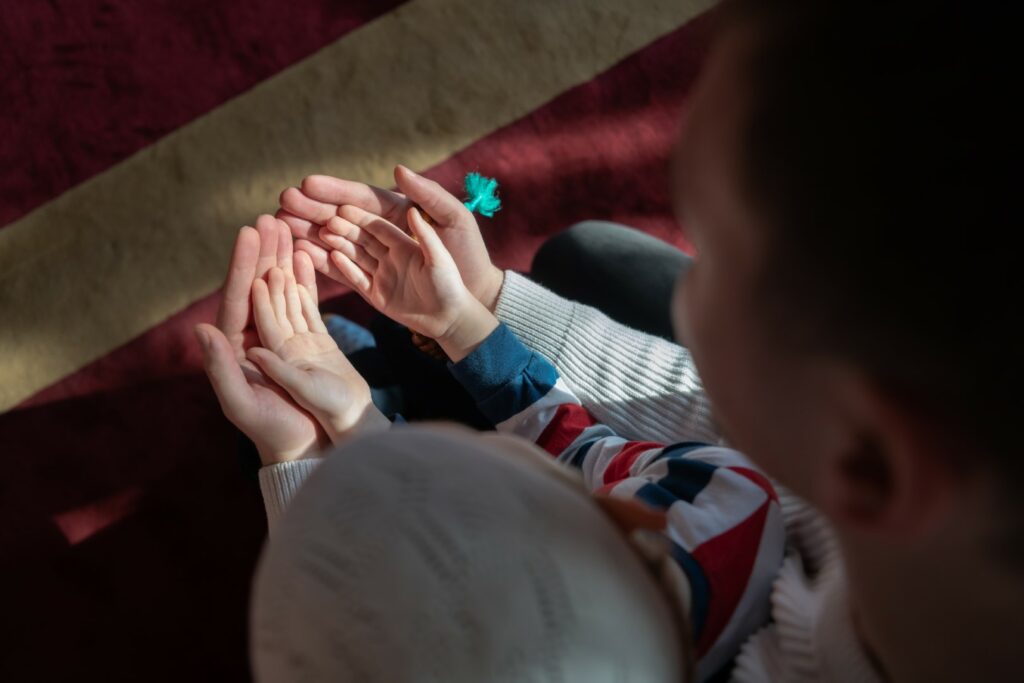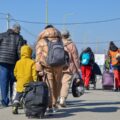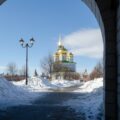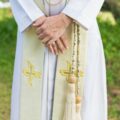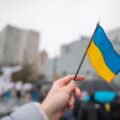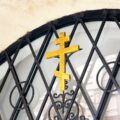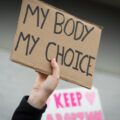Insights from the Dashboard: What role do traditions play in the conflict?
Insights from the Dashboard: What role do traditions play in the conflict?
The EARS dashboard shows that ‘traditions’ trend among the topics since the Russian invasion of Ukraine. What role do traditions play in the current conflict?
Trending tradition
Since the beginning of the Russian invasion of Ukraine, the mention of one topic on the dashboard grew considerably: traditions. Between the 24th of February 2022 and the end of April, 147 articles on that topic have been summarised, which constituted nearly a quarter of all articles summarised in that period.
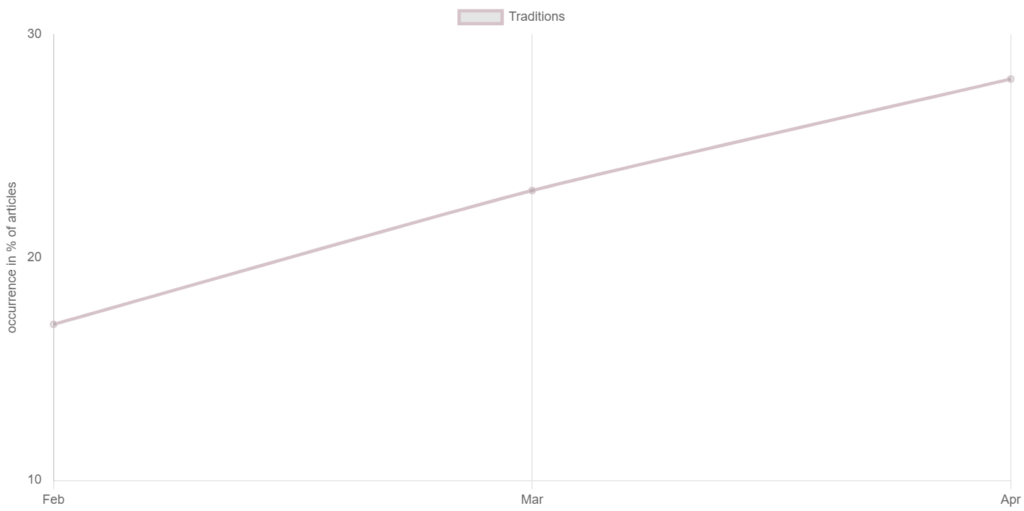
If we take a look at the word cloud of terms associated with tradition, we may notice that many relate to the Russian invasion of Ukraine, as the biggest ones include Ukraine, Russian Federation, people, and war. This interrelation raises the question: what role do traditions play in this conflict?
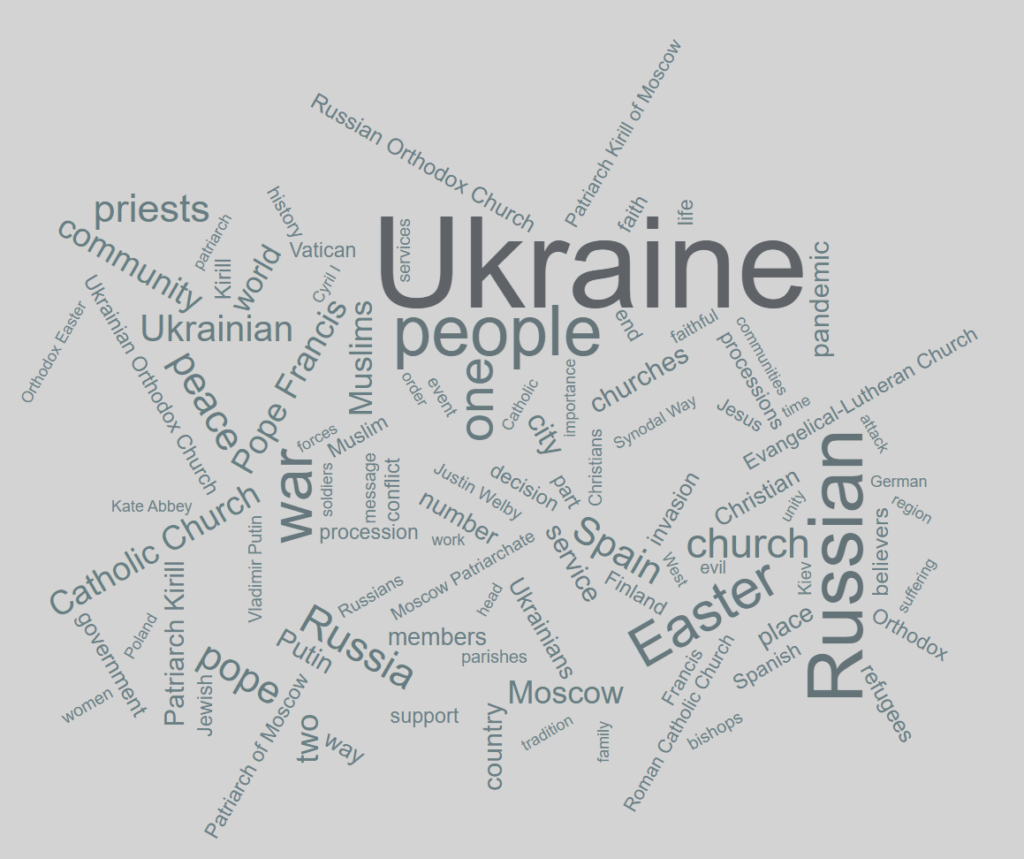
An analysis of the connected topics may help us answer this question. The following picture shows the interrelation of the five most important topics within the selection of ‘traditions’: leadership, tension, identity, culture wars, and orthodoxy.
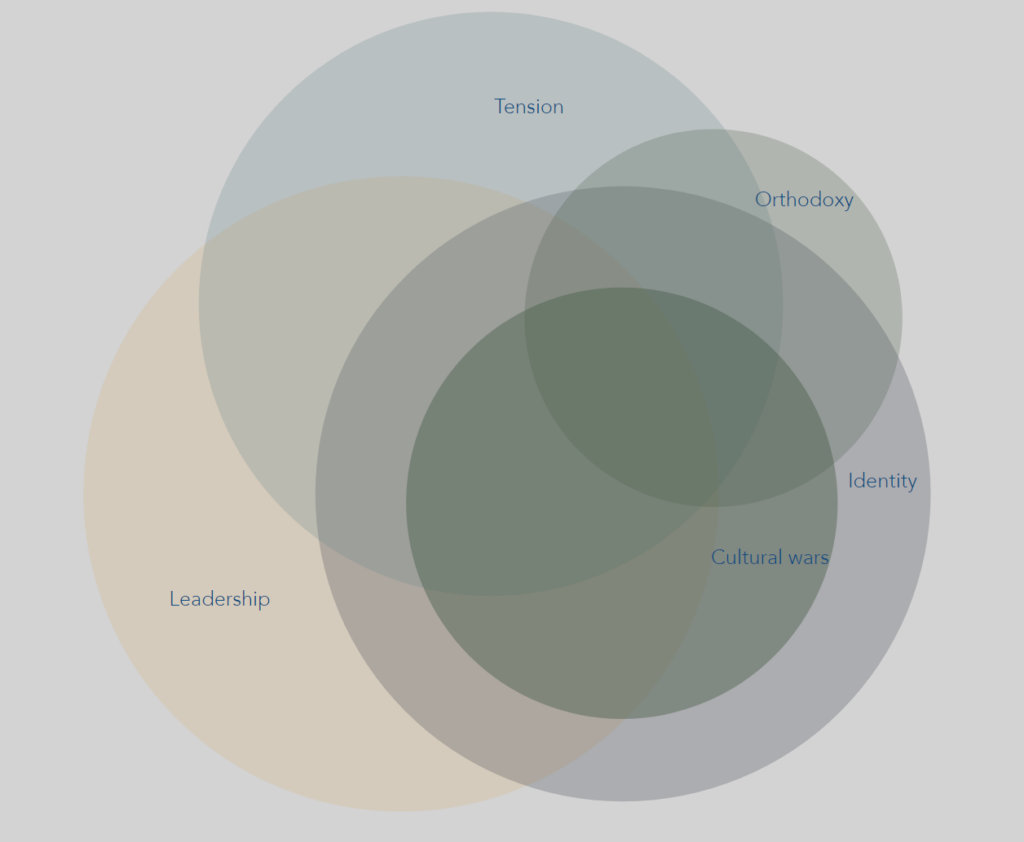
The spotlight on leaders
The prominence of leadership shows the crucial role of high-level involvement in the conflict. And this includes both secular and religious leaders, with debates over how the latter represent their respective traditions. A lot of attention has been given to the support of Patriarch Kirill for the conflict,[1] [2] [3] [4] [5] the reaction of other churches under the Moscow Patriarchate,[6] and the responses of other religious communities,[7] including leaders such as the Ecumenical Patriarch Bartholomew,[8] [9] Pope Francis,[10] [11] [12] [13] or even the World Council of Churches.[14] Interestingly, not only the role of Kirill was contested, but also the reactions of the Vatican[15] [16] [17] [18] and the WCC[19] [20] seemed to raise concerns.[21]
The notion of identity at the core of the tensions
But religious leadership constituted just one aspect of the role that religious traditions played in the handling of the conflict. Two other terms, identity and orthodoxy, were connected with the third, tension, highlighting another important aspect of tradition in and around the Russian invasion.
The existence of four main Christian communities in Ukraine, including two Orthodox, Ukrainian Orthodox Church under the Moscow Patriarchate and the autocephalous Orthodox Church of Ukraine, as well as two Catholic, Roman and Greek Catholic communities, is not inconsequential either. Each of these traditions bears a slightly different identity and each comes with its own problems, longings, and understanding of what a Ukrainian nation is.[22] The tensions between these communities are crucial both for internal situation, including ideas of banning the churches belonging to the Moscow Patriarchate,[23] [24] [25] and the international relations, as with the questions concerning the careful balancing that the Vatican is attempting to follow between maintaining relations with the Moscow Patriarchate and the support for Catholics in Ukraine.[26]
Is it all about values?
Identity also completely overlaps with cultural wars, which shows the importance of the idea that two worldviews clash in Ukraine, and suggests that some understand it as the clashing of value systems. And indeed, this is how Russia is trying to frame the conflict. For example, Patriarch Kirill suggested that the events in Donbas were a result of the imposition of consumptionist values, the alignment with which is represented by the demands to organise “gay parades.”[27] In this vision, Russia is fighting for a system of Eastern, Orthodox values, which is endangered by the West and the “nazis” in Ukraine.[28]
These ideas align with the broader notion of the ‘clash of civilisations’. Western European media also presented a similar line of argumentation, even if they did not share the argumentation presented by the Russian officials. For example, one of the articles summarised on the dashboard seems to go as far as to say that this is the conflict between the Western and Eastern Christianity, a clash of Western Christian and Orthodox civilisations.[29]
The notion of the ‘clash of civilisations’ can be traced back to an American political scientist Samuel Huntington who, in his famous text for Foreign Affairs from 1993 under the same title, pointed out that cultural and religious identities forming distinct civilisations will be the primary lines of division and the sources of conflict in the post-Cold War reality.[30]
‘Clash’ under pressure
And yet, Huntington’s thesis does not hold well in the context of the Russian invasion. Many describe the Russian invasion as “fratricidal,”[31] [32] while the primary battles take place in the heavily Orthodox East of the country, where Russian language is commonly spoken, rather than in the West, which historically expressed pro-Western tendencies.[33]
This could suggest that nearly 30 years after the publication, Huntington’s ‘Clash of Civilisation’, his main thesis that in the 21st century the main conflict lines will run between civilisations did not prove adequate. The two countries from the same ‘Orthodox civilisation’ cannot even achieve a ceasefire during Easter.[34] ‘Civilisation’ as a concept seems not to provide an adequate perspective on the current conflict. However, as the predominance of this term on the dashboard could suggest, tradition might be a better heuristic tool that offers a more nuanced understanding of the situation.
You can use the free EARS Dashboard to learn more about trends and developments on the topic of religion and society. Hundreds of article summaries from all over the world were added in the past month!
Sources
[1] Tuż przed inwazją na Ukrainę patriarcha Moskwy mówił rosyjskim żołnierzom, że wybrali słuszną drogę – rp.pl
[2] Sans dénoncer la guerre, le patriarche de Moscou invite à prier pour la paix – Le site de l’Eglise Catholique en Belgique (cathobel.be)
[3] Патријархот Кирил повика на молитва за мир во „руската земја“ – Нова Македонија
[4] Chi è il patriarca russo Kirill, che ha parlato di una guerra «contro l’Occidente» che «sostiene i gay»- Corriere.it
[5] Hoe de oorlog in Oekraïne nauw verweven is met godsdienst: “Poetin en Kirill dromen van groot Russisch-orthodox rijk” | VRT NWS: nieuws
[6] Russia-Ucraina, un conflitto (anche) religioso – Nev
[7] ‘The darkness of war’: Ukraine crisis dominates leaders’ Easter messages | Easter | The Guardian
[8] Ekumeniczny Patriarcha Bartłomiej: Zakończyć tę obrzydliwą wojnę – rp.pl
[9] Costantinopoli contro Mosca: la guerra di religione per l’Ucraina | Euronews
[10] Papa dhe Patriarku ortodoks rus diskutojnë për luftën në Ukrainë – Gazeta Shqiptare Online
[11] Abp Gądecki: Papież jest dobrze poinformowany w sprawie sytuacji w… (gosc.pl)
[12] Ucraina, nuovo colloquio telefonico tra il Papa e Zelensky – Vatican News
[13] Papa Francesco, perché ha rafforzato le sue critiche alla Russia?- Corriere.it
[14] Why is the WCC unlikely to expel the Russian Orthodox Church? – EARS (europeanacademyofreligionandsociety.com)
[15] Rosjanka i Ukrainka razem przygotowały rozważanie na papieską Drogę… (gosc.pl)
[16] Guerra Russia-Ucraina, Papa Francesco chiede una “tregua pasquale”: “Che vittoria sarà quella su un cumulo di macerie?” – Il Fatto Quotidiano
[17] ‘Incoherent en zelfs beledigend’: kruisweg in Rome onder forse Oekraïense kritiek – Katholiek Nieuwsblad
[18] Papa Franjo primio mađarskog premijera Orbána – Vatican News
[19] Expel Russian Orthodox from WCC says Rowan Williams (thetablet.co.uk)
[20] World Council of Churches faces calls to expel Russian Orthodox Church | National Catholic Reporter (ncronline.org)
[21] See also Religious political manoeuvers in the Ukrainian crisis – EARS (europeanacademyofreligionandsociety.com)
[22] Role of religion for the ukrainian nationalism (udc.es)
[24] Власти в Обуховском районе Киевской области призвали запретить УПЦ – СПЖ – Союз православных журналистов
[25] У парламенті немає теми заборони УПЦ, – речник ВР – СПЖ – Спілка православних журналістів (spzh.news)
[26] The Pope, the Patriarchs, and the Battle to Save Ukraine | The New Yorker
[27] Patriarcha Moskwy w kazaniu broni wojny Putina. Mówi też o “paradach gejów” – rp.pl
[28] What Putin Gets Wrong About ‘Denazification’ in Ukraine | Time
[29] Ucraina e Russia tra guerra di religione e scontro di civiltà tra cristiani occidentali e orientali (ilmessaggero.it)
[30] The Clash of Civilizations?
[31] What the Russian Invasion Has Done to Ukraine | The New Yorker
[32] Russian journalist Marina Ovsyannikova calls for end to ‘fratricidal’ war in Ukraine – The Interview (france24.com)
[33] How History, Geography Help Explain Ukraine’s Political Crisis (nationalgeographic.com)
[34] Russia rejects UN’s Ukraine Easter ceasefire calls to evacuate civilians (axios.com)
